For 1990-2009 cars only
Coolant Heater Replacement RPOs LC9/L76/L92
Removal Procedure
- Drain the cooling system/engine block. Refer to Cooling System Draining and Filling .
- Raise and support the vehicle. Refer to Lifting and Jacking the Vehicle .
- Remove the oil pan skid plate bolts and plate, if equipped.
- For vehicles with regular production option (RPO) L76 (6.0L), perform the following steps. Otherwise, proceed to step 9.
- Remove the oil cooler hose bracket bolt (1), if equipped.
- Remove the oil cooler hose adapter bolts (2), if equipped.
- Remove and discard the oil cooler hose adapter gasket, if equipped.
- Position the oil cooler hose adapter end out of the way, if equipped.
- Disconnect the coolant heater cord electrical connector.
- Remove the coolant heater from the engine block.
- Remove any burrs, sealer, or other rough spots.
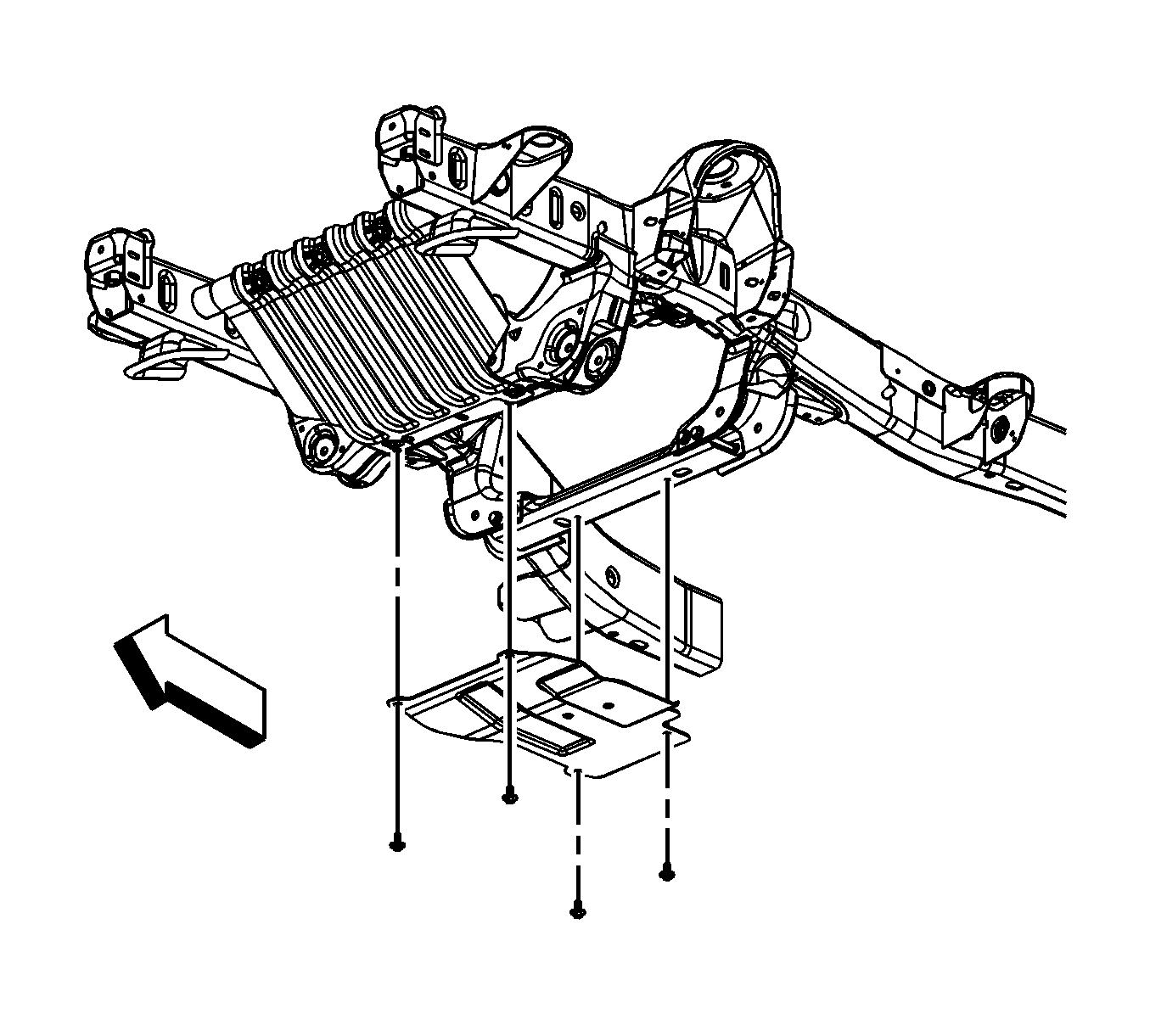
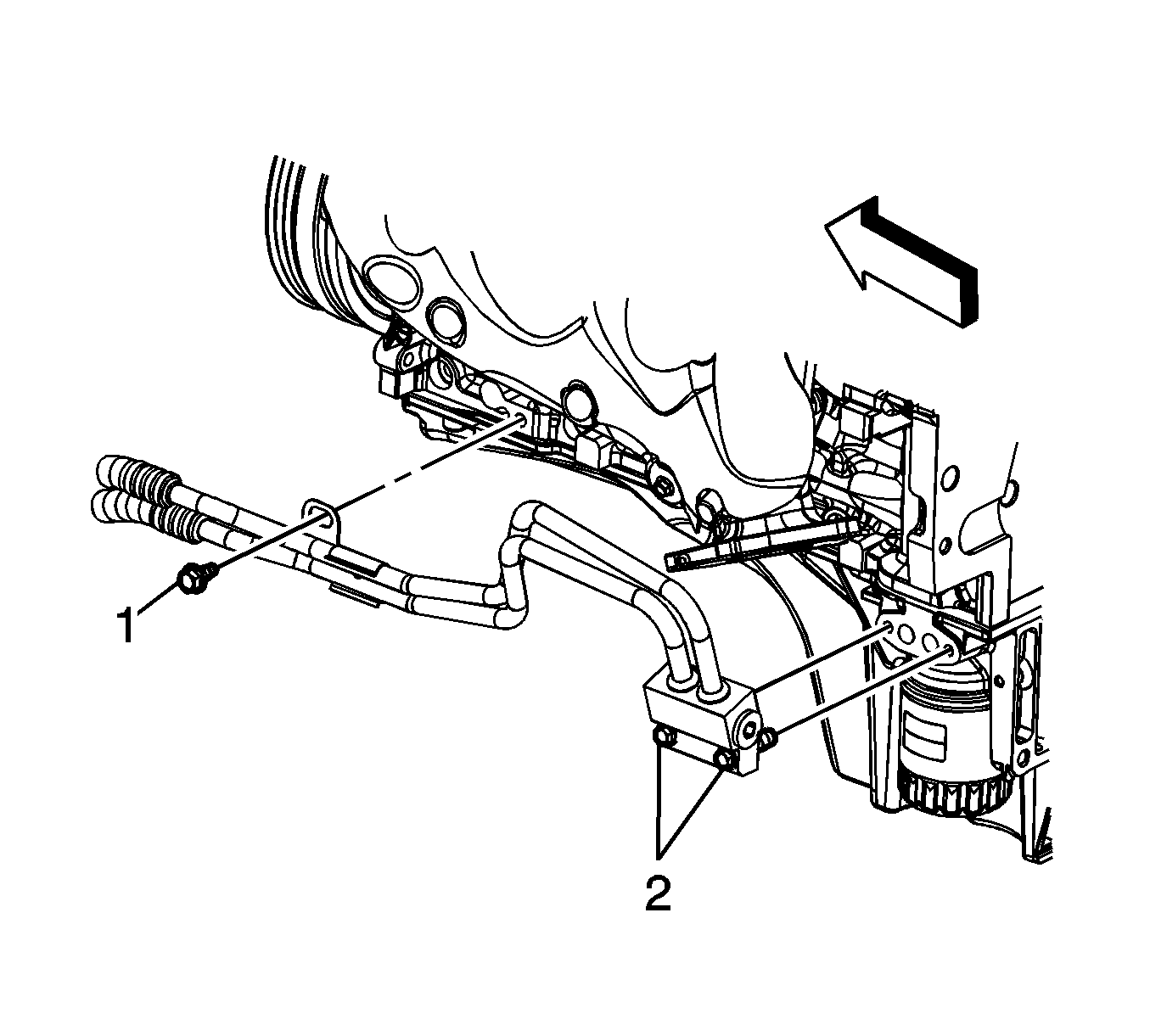
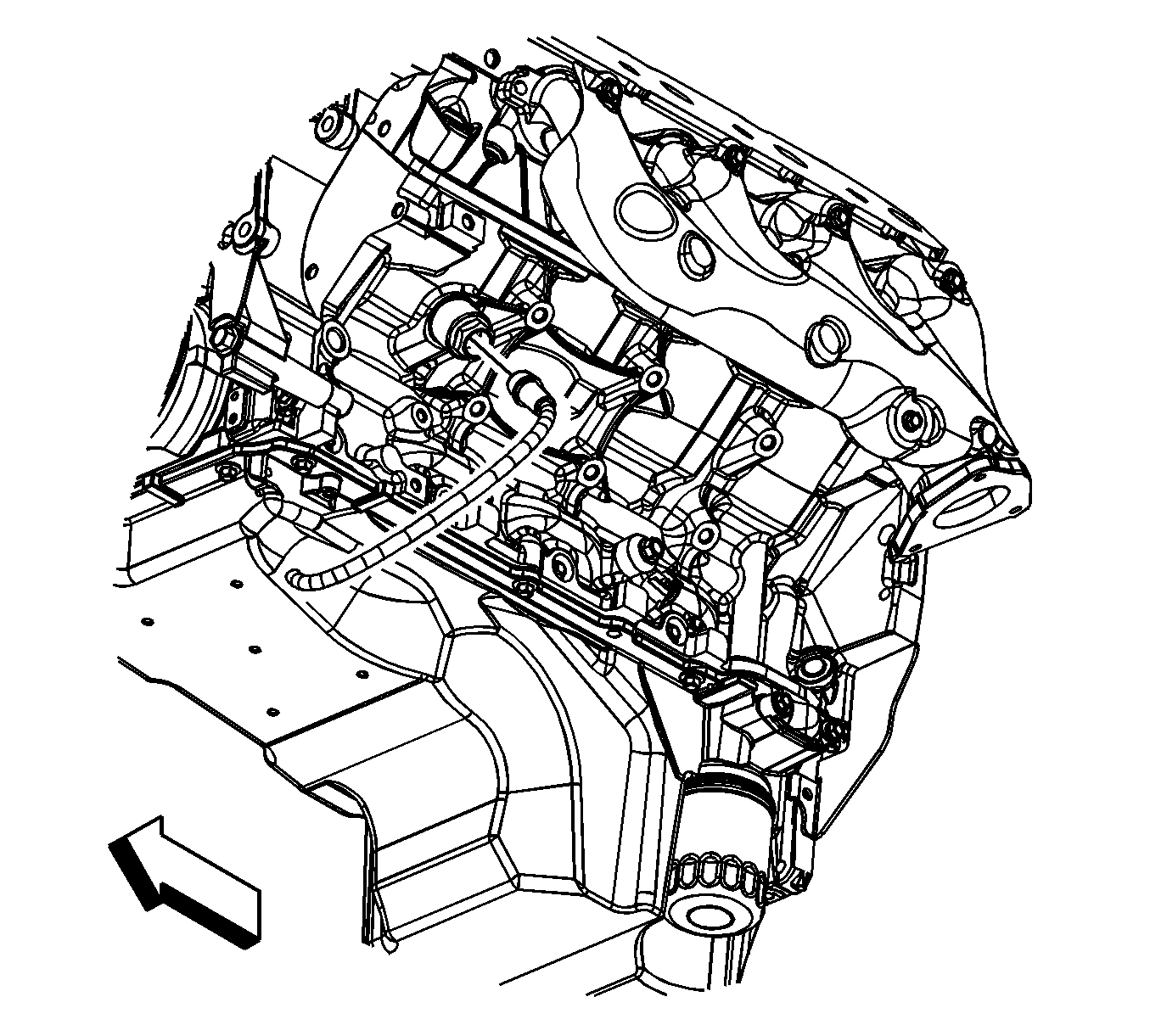
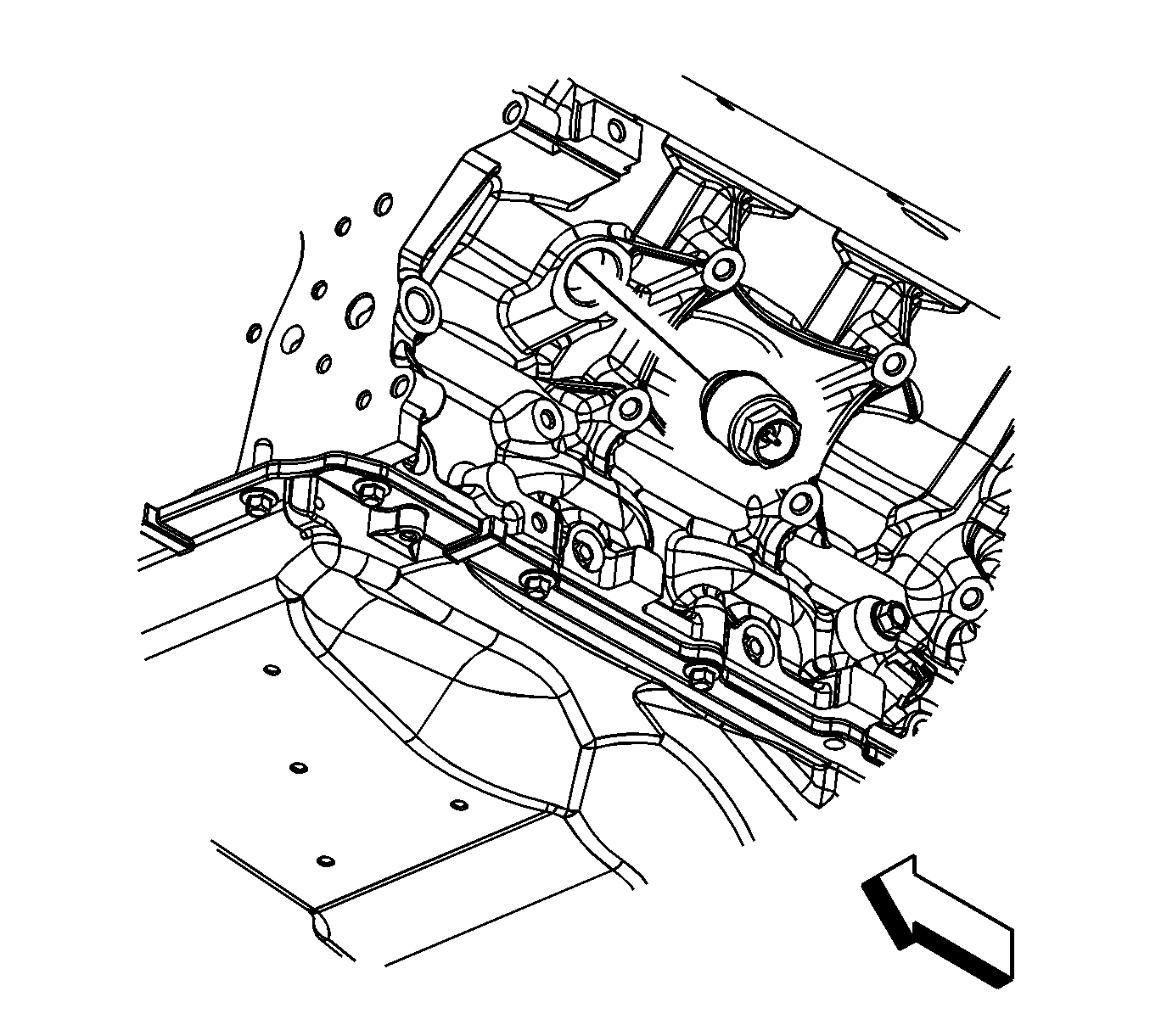
Important: Do not score the surface of the engine block hole when removing the coolant heater.
Installation Procedure
- If reusing the old coolant heater, apply thread sealant GM P/N 12346004 (Canadian P/N 10953480), or equivalent to the threads.
- Install the coolant heater to the engine block.
- Connect the coolant heater cord electrical connector.
- For vehicles with RPO L76 (6.0L) perform the following steps otherwise proceed to step 9.
- Position the oil cooler hose adapter end, if equipped.
- Install a NEW oil cooler hose adapter gasket, if equipped.
- Install the oil cooler hose adapter bolts (2), if equipped.
- Install the oil cooler hose bracket bolt (1), if equipped.
- Position and install the oil pan skid plate and bolts, if equipped
- Lower the vehicle.
- Fill the cooling system/engine block. Refer to Cooling System Draining and Filling .

Notice: Refer to Fastener Notice in the Preface section.
Tighten
Tighten the coolant heater to 50 N·m (37 lb ft).


Tighten
Tighten the bolts to 12 N·m (106 lb in).
Tighten
Tighten the bolt to 25 N·m (18 lb ft).

Tighten
Tighten the bolts to 20 N·m (15 lb ft).
Coolant Heater Replacement RPOs LY2/LMG/LY5/LY6
Removal Procedure
- Drain the cooling system/engine block. Refer to Cooling System Draining and Filling .
- Raise and support the vehicle. Refer to Lifting and Jacking the Vehicle .
- For 1500 series vehicles, remove the oil pan skid plate bolts and plate, if equipped.
- For 2500 series vehicle, remove the front 2 oil pan skid plate bolts, loosen the 2 rear bolts and remove the skid plate, if equipped.
- For vehicles with regular production option (RPO) LY6 (6.0L) perform the following steps otherwise proceed to step 10.
- Remove the oil cooler hose bracket bolt (1).
- Remove the oil cooler hose adapter bolts (2).
- Remove and discard the oil cooler hose adapter gasket.
- Reposition the oil cooler hose adapter end out of the way.
- Disconnect the coolant heater cord electrical connector.
- Remove the coolant heater from the engine block.
- Remove any burrs, sealer, or other rough spots.

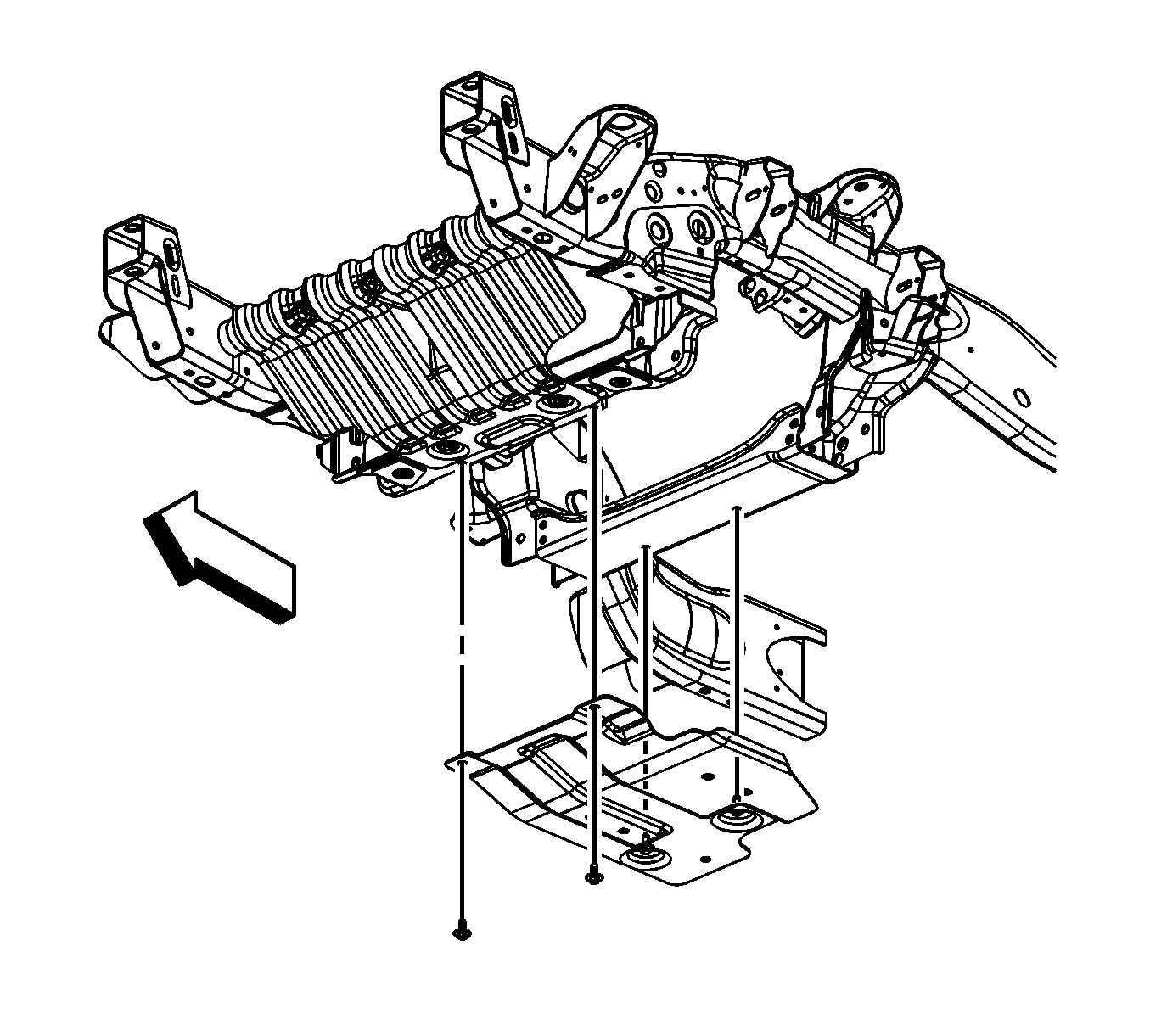
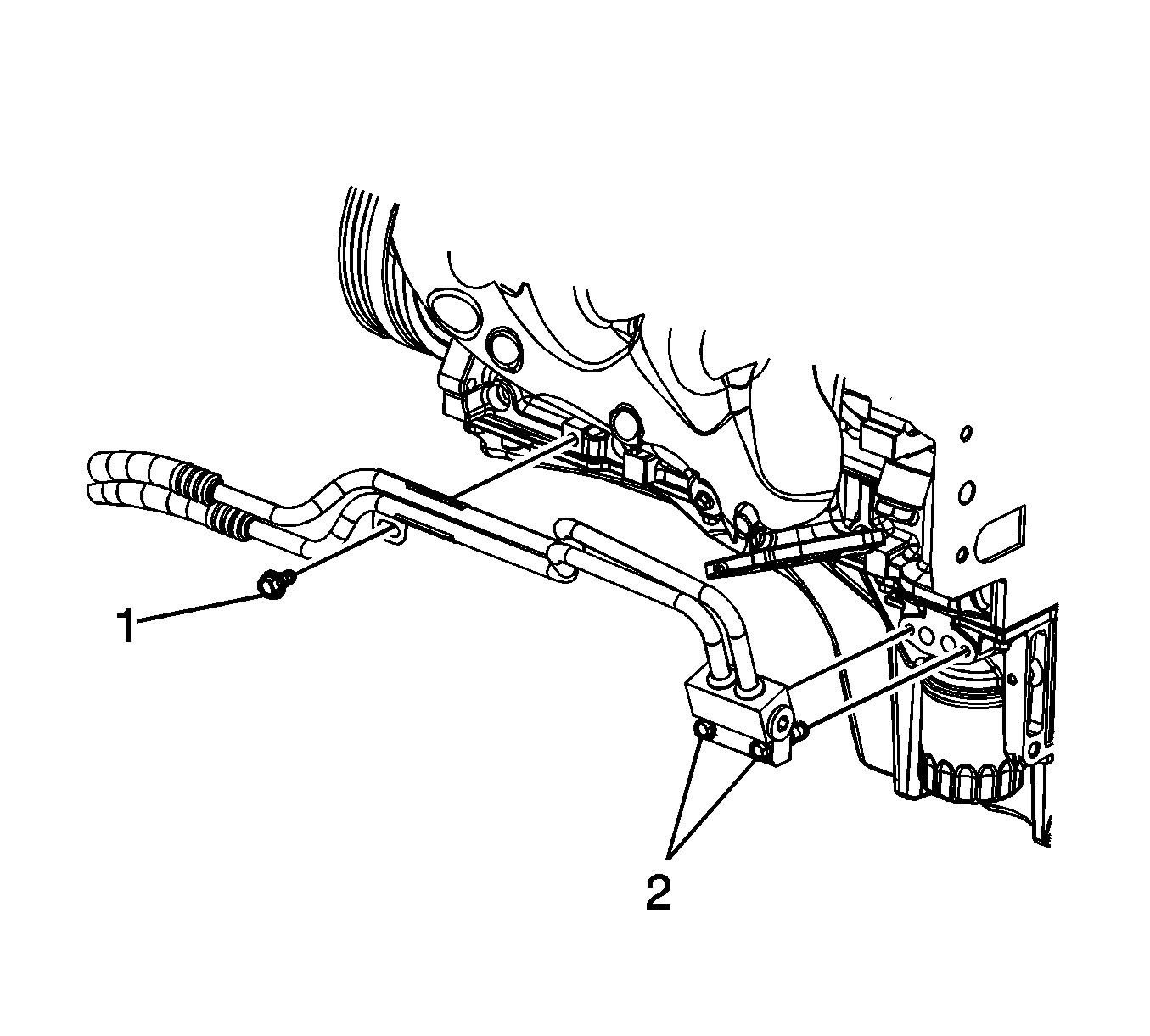
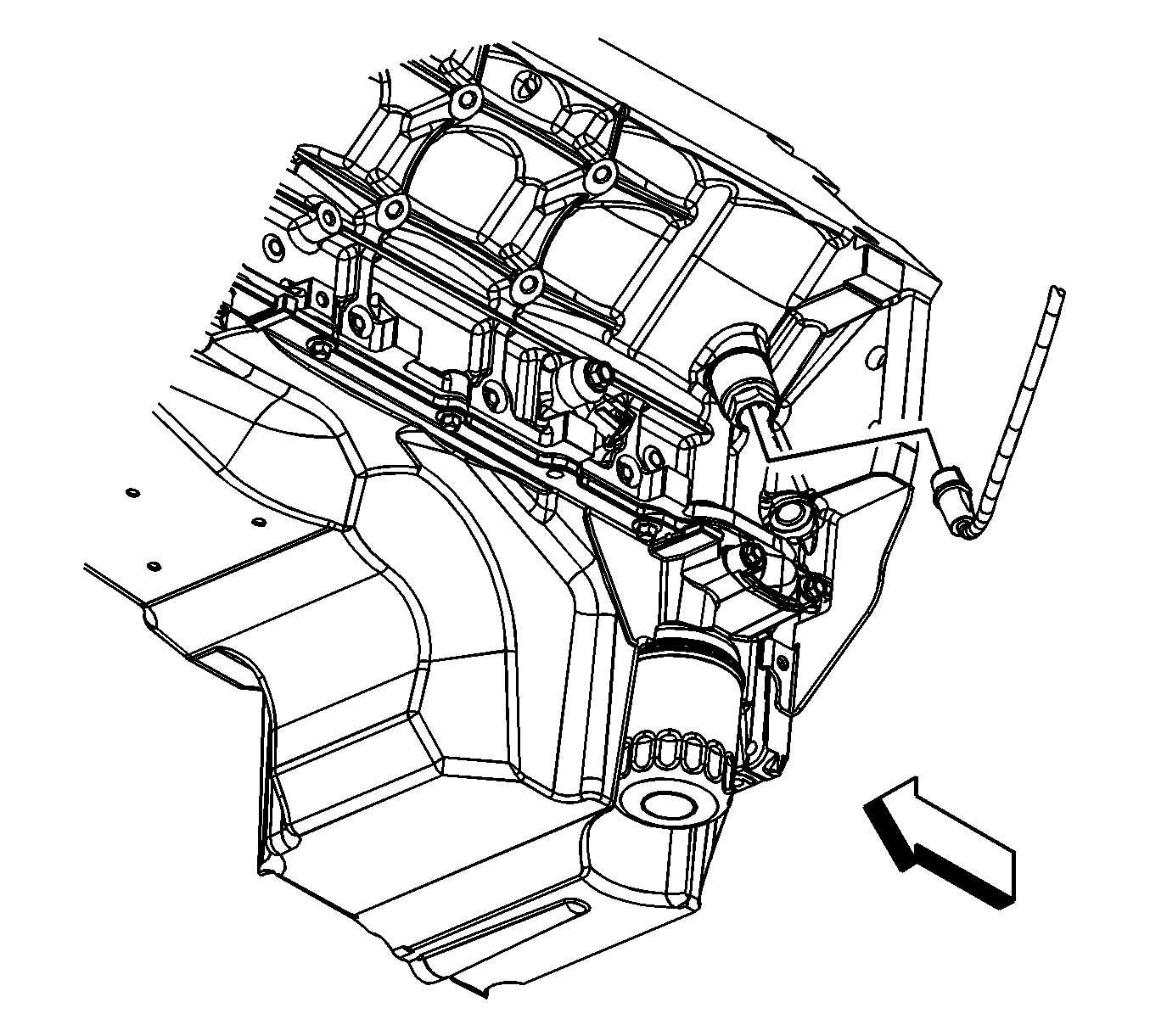
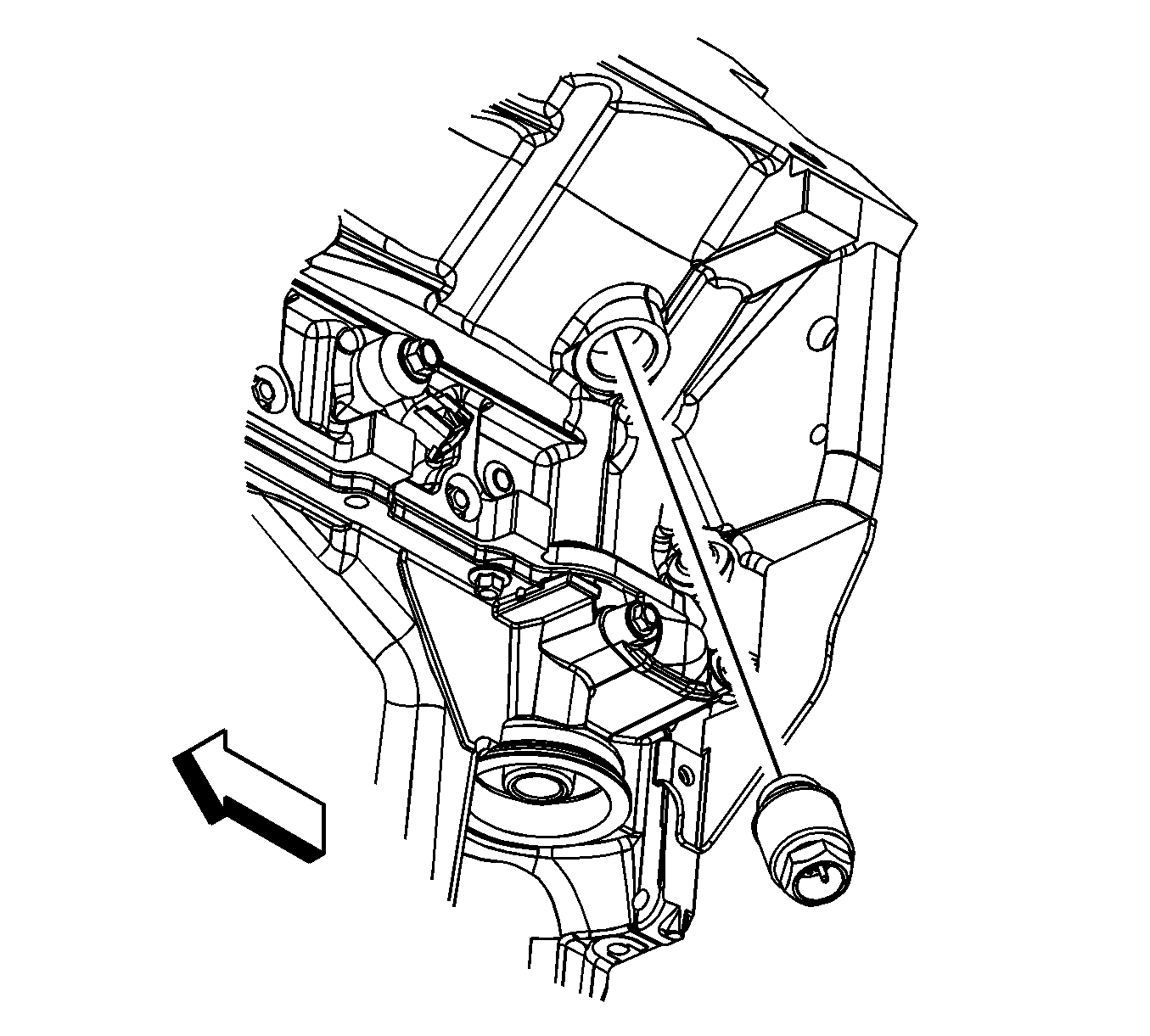
Important: Do not score the surface of the engine block hole when removing the coolant heater.
Installation Procedure
- If reusing the old coolant heater, apply thread sealant GM P/N 12346004 (Canadian P/N 10953480), or equivalent to the threads.
- Install the coolant heater to the engine block.
- Connect the coolant heater cord electrical connector.
- For vehicles with RPO LY6 (6.0L) perform the following steps otherwise proceed to step 9.
- Position the oil cooler hose adapter end.
- Install a NEW oil cooler hose adapter gasket.
- Install the oil cooler hose adapter bolts (2).
- Install the oil cooler hose bracket bolt (1).
- For 2500 series vehicles, position the oil pan skid plate and install the 2 front bolts and tighten the 2 rear bolts, if equipped.
- For 1500 series vehicles position and install the oil pan skid plate and bolts, if equipped.
- Lower the vehicle.
- Fill the cooling system/engine block. Refer to Cooling System Draining and Filling .

Notice: Refer to Fastener Notice in the Preface section.
Tighten
Tighten the coolant heater to 50 N·m (37 lb ft).


Tighten
Tighten the bolts to 12 N·m (106 lb in).
Tighten
Tighten the bolt to 25 N·m (18 lb ft).

Tighten
Tighten the bolts to 20 N·m (15 lb ft).

Tighten
Tighten the bolts to 20 N·m (15 lb ft).
